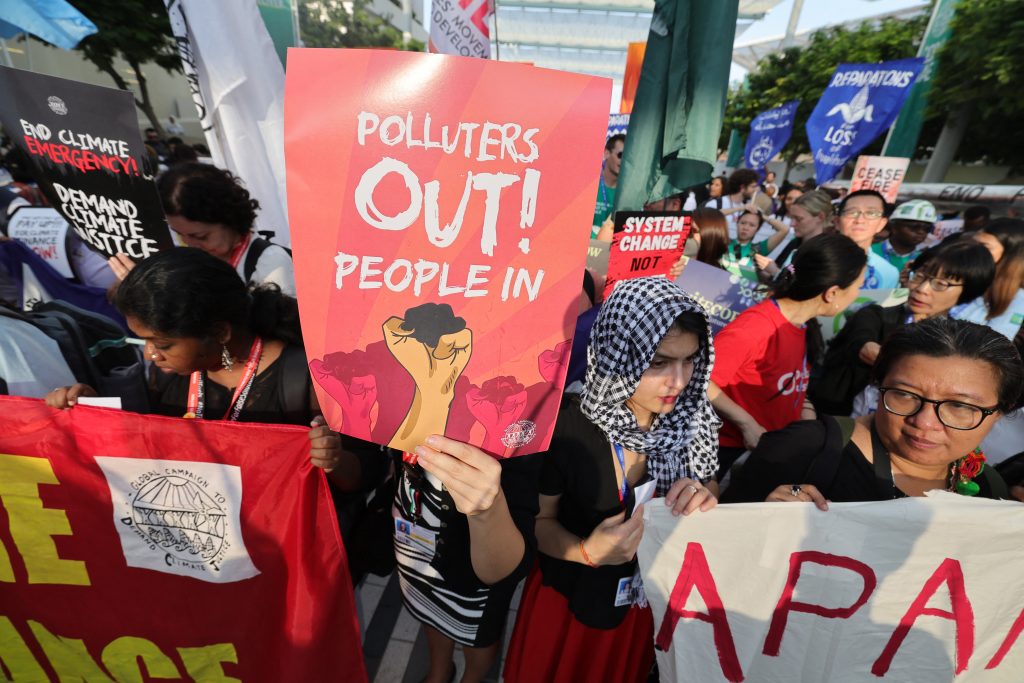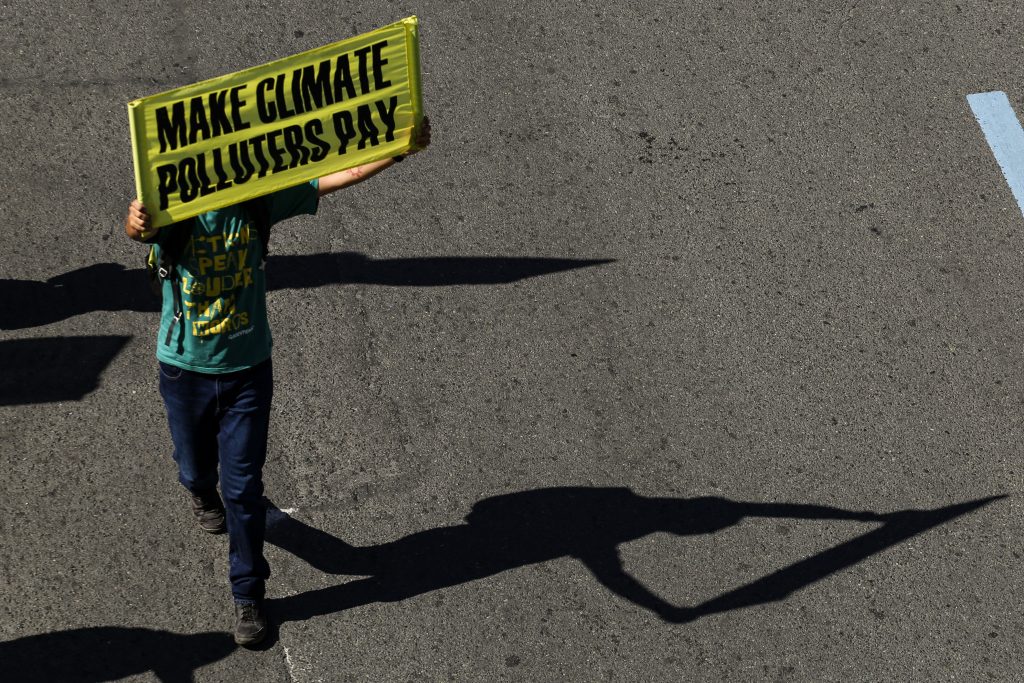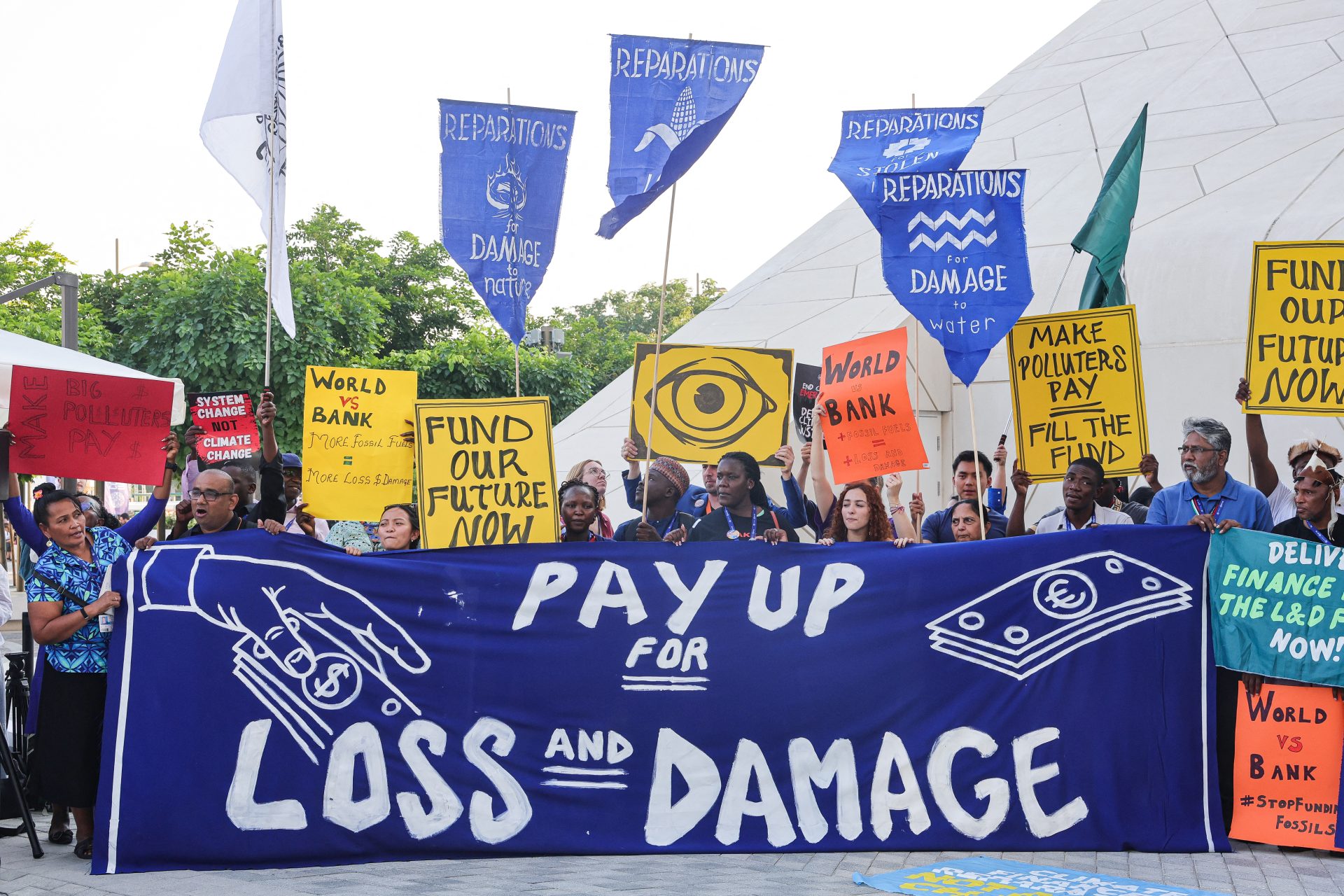The world’s biggest greenhouse gas emitter, China, lags among the “low” performing countries despite growth in renewables, while Indonesia and Malaysia dropped in ranking tackling climate change, according to a new report released Friday at COP28 in Dubai.
Despite the boom in renewables, climate policies have stagnated in many countries since last year, experts said in the 2024 Climate Change Performance Index, or the CCPI, which evaluates climate mitigation efforts in 63 nations and the European Union.
The report coverage accounts for over 90% of global greenhouse gas emissions. It uses standardized criteria across four categories: greenhouse gas emissions (40% of the score), renewable energy (20%), energy consumption (20%), and climate policy (20%).
“For the first time, not a single country ranks “high” in the category climate policy… This threatens the national emission reduction targets for 2025 and 2030,” report’s co-author Niklas Hohne from NewClimate Institute said at a press conference in Dubai.

China received a “very low” rating in the greenhouse gas emissions and energy use categories and a medium in renewable energy and climate policy.
“Although China has a strong growing renewable energy sector and improves energy efficiency measures, it is among the nine countries responsible for 90% of global coal production,” according to CCPI.
Beijing also plans to increase its gas production by 2030 (compared with 2019 levels), which is incompatible with the 1.5 degrees Celsius target, the report said, adding China’s slowing economic growth has led to less ambitious climate targets in recent years.
Some 450 experts contributed to the index, prepared by two German NGOs, Germanwatch and NewClimate Institute, and CAN International, a network of climate activist organizations.
Fossil fuel phase-out
The top three positions remain empty this year, as no country assessed performed “very high” in all four categories. Denmark led the index with third position, followed by Estonia and the Philippines, while oil-dependent countries like the United Arab Emirates, Iran, and Saudi Arabia occupied the bottom three.
“The CCPI shows once again that the biggest fossil fuel producers and exporters fair the worst in the index,” Janet Milongo, a senior CAN International officer, told journalists.
“This adequately finds out demands for the phase-out of all Fossil Fuels, full fast forever and funded… with all efforts and finance towards scaling up to 100% renewable energy systems in a just, equitable and rapid manner.”
Fossil fuel phase-out is one of the top agendas currently at COP28 in UAE, ranked worst in the greenhouse gas emissions category with its high per capita emissions of 25.9 metric tons and a meager share of renewable energy, less than 1%.

As negotiations entered their crucial second week on Friday, the fight over what to say about fossil fuels in the final text is heating, experts told Radio Free Asia.
During the last COP, India and China pushed for “phase out” over “phase down” for fossil fuels in the final text, and in the current COP, they are advocating for the complete omission of any reference to fossil fuels in the final text, according to sources.
Philippines excels while Malaysia drops
In this year’s CCPI, the Philippines has improved its ranking, moving up six places to 6th, with the highest ratings among the 63 countries in GHG emissions and energy use, medium in renewable energy, and low in climate policy.
The country excels in per capita emissions, with 2.27 metric tons per capita, outperforming many other countries. However, CCPI experts criticized the country for lacking a long-term emissions reduction strategy and no government policies for solid fiscal measures, such as the phase-out of fossil fuel subsidies.
Southeast Asia’s biggest emitter Indonesia dropped 10 places to the 36th position, with a low rating in GHG emissions and climate policy categories.
The report criticized the country’s Nationally Determined Contribution, a specific and voluntary commitment to reduce GHG emissions, saying it is still not aligned with the Paris goals and is only based on inflated ‘business-as-usual’ calculations.

Despite committing to phasing out coal with the help of donors and introducing a cap-and-trade system for coal power plants, CCPI experts expressed concerns that there were no policies to stop or limit fossil fuel use and carbon pricing was too low.
According to the report, 36 units of biomass-coal co-firing power plants were active in 2022 in Indonesia, while there was also an increase in biodiesel production from crude palm oil.
Among Southeast Asian countries, Malaysia ranked the lowest at 59th, performing abysmally in the GHG emissions and energy use categories, low in climate policy, and medium in renewable energy.
CCPI said Malaysia’s National Energy Transition Roadmap highlights the role of biomass, particularly palm oil, in Malaysia’s energy transition, with efforts to enforce national environmental standards for plantations, which has concerned CCPI experts.
They said Malaysia remains reliant on oil and gas industries with substantial subsidies, suggesting the need for broader strategies to prevent both high emissions and economic repercussions associated with carbon-intensive development.

Thailand and Vietnam
Meanwhile, Vietnam and Thailand upped their games, ranking among countries with medium performance levels.
Thailand ranked 25th, up 17 spots, with low ratings in the climate policy and renewable energy categories but high GHG emissions and energy use.
In August, the newly elected democratic government set up the Department of Climate Change and Environment to tackle climate change’s harmful impacts and fulfill the country’s climate pledges.
Thailand is focused on reducing CO2 emissions in the energy sector, aiming for at least 50% renewable energy in new power generation capacity by 2050, and promoting electric vehicle adoption, with experts suggesting a coal phase-out commitment and suspending power purchase agreements until electricity demand and development plans are revised.
Vietnam jumped 13 spots to 27th, with a low in the GHG emissions and energy use categories but medium in renewable energy and climate policy.
Vietnam is committed to net zero goals and renewable energy in its latest power development plan, surpassing its own NDC targets. Still, the implementation of policies faces delays and lacks cross-sectoral coordination.
The progress is overshadowed by the imprisonment of climate activists and experts, with the latest known detainment to be in September 2023.







